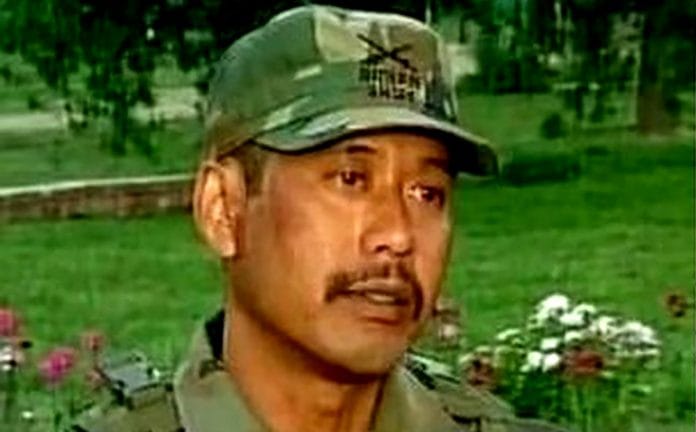The officer was in the news last year for tying a Kashmiri weaver to the bonnet of his army jeep and using him as a human shield.
New Delhi: Major Leetul Gogoi, the officer at the centre of the human shield controversy in Kashmir in April 2017, will face disciplinary action after a Court of Inquiry found him guilty of violating standard operating procedures for soldiers in operational areas. The disciplinary action could mean a court martial. But that will be decided by his superiors after a summary evidence is recorded.
An army court of inquiry recommended disciplinary action against the officer after he was caught with a girl at a Srinagar hotel in May this year.
The court of inquiry has found the Major guilty of “fraternizing locally inspite of instructions to the contrary and for being away from the place of duty while in an operational area”.
Gogoi is an Army Cadet College officer through which soldiers in junior ranks get opportunities to get commissioned as officers. He was posted with the 53 Rashtriya Rifles.
Also read: Why an Indian Army Major can’t just meet a woman at a hotel anywhere
Major Gogoi was handed a commendation by the army chief, General Bipin Rawat, for his action in April last year.
He had caught a weaver, Farooq Dar, and tied him to the bonnet of his jeep and drove through villages where the army said election officials were in danger of being attacked. Dar was used as a human shield.
Subsequently, Gogoi was perceived to have embarrassed his organisation and his chief when he was caught in front of hotel in Srinagar in the last week of May this year. Gogoi was accompanied by a girl who was described by the police to have been a minor. But that is still a matter of investigation because some accounts have described her as an adult.
Soldiers are strictly told not to fraternalise socially with locals because that could lead to information being exchanged willy nilly.
Major Gogoi’s action in using a human shield sharply divided opinion on the use of such tactics that violate human rights. But that event and the reason for which he could now to face a court martial are unrelated.
Also read: How should the Indian army ethos handle Major Gogoi’s case?
On June 14, Rifleman Aurangzeb posted with the 44 Rashtriya Rifles was kidnapped and killed by militants. He had stepped outside his camp on holiday and was apparently about to meet a girlfriend. Despite such violation of procedures Aurangzeb was given a gallantry medal posthumously in the Independence Day awards.
Since Rifleman Aurangzeb’s killing, General Rawat has repeatedly emphasized that it was important for all soldiers to follow standard operating procedures. He has also restrained the army’s own social functions to utilitarian ceremonies.







Got away with a sheep, tripped up by a lamb.